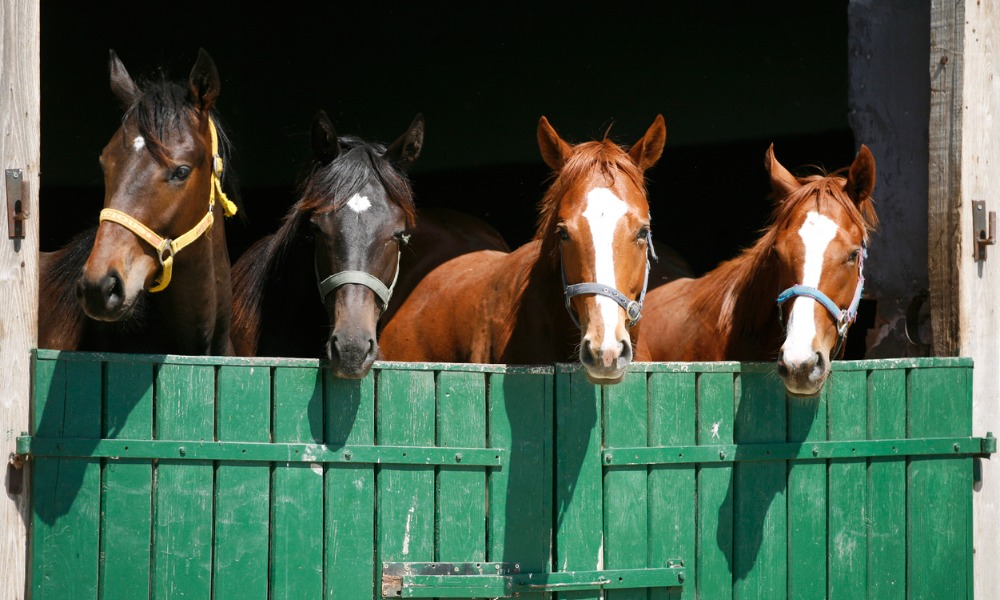
Court granted possession over horses living on the property to husband despite wife's concerns

The Ontario Superior Court of Justice has granted exclusive possession of a matrimonial home to the husband despite the wife's concerns over the care for special needs horses living on the property.
In Taafe v. Taafe, 2023 ONSC 5870, Lesley and William Taafe were married for 26 years before they separated in July. The wife was charged with assaulting the husband and their adult daughter, uttering death threats and mischief. The wife worked as a lawyer until 2021 and has been unemployed. The husband is a police officer.
The wife cannot attend the matrimonial home due to the terms of her recognizance. She filed an urgent motion seeking exclusive possession of the matrimonial home in Slanter Road, Reaboro, Ontario. She claimed that she had four special needs horses and a donkey that lived on the matrimonial home property, and she had solely cared for these animals until the separation.
The husband argued that there was no legal basis for the wife to be granted exclusive possession of the home. He asserted that the fact five large animals must be cared for is not one of the criteria listed under the Family Law Act that the court must consider when determining whether a spouse should be granted exclusive possession of the matrimonial home.
The Ontario Superior Court of Justice explained that the factors to consider in determining whether to make an order for exclusive possession are the best interests of the children affected, any existing family property and support orders, the financial position of both spouses, any written agreement between the parties, the availability of other suitable and affordable accommodation, and any violence committed by a spouse against the other spouse or the children.
The court found that the husband and one of their adult children, currently in school to become a police officer, have resided at Slanter Road since the separation. The court also found three horses have special needs, and the fourth is quite old. The animals require extensive care, and the wife said that before her arrest, she spent 6 hours a day tending to their care, not including time spent grooming them and cleaning the stable. The wife was extremely concerned that the horses were not being properly cared for by the husband.
On the other hand, the husband argued that the animals were being cared for by him, his daughter, and a third party whom the wife initially hired.
Applying the criteria provided under the Family Law Act, the court ultimately found that the husband was in a better financial position than the wife, given that he was earning a regular income and could meet the expenses of the matrimonial home. Further, the court found that it would not make financial sense for the husband to move into the parties' rental investment property and to pay operating costs associated with both the rental property and the matrimonial home. Under these circumstances, the court ruled that the husband should have exclusive possession of the matrimonial home as it would cause the least disruption to the family.
The court also noted that the husband has possession of the property, and his daughter, who also resides there, is completing her police course. Although the adult daughter is not a "child of the marriage" as defined in the Divorce Act, she is residing in the matrimonial home and would be displaced if she had to move before the completion of her course.
Ultimately, the court allowed the husband exclusive possession of the matrimonial home until January 31, 2024. The court believed that this period would enable the husband to find suitable alternative accommodations and allow his daughter to decide where she would reside.
Nonetheless, the court shared the wife's concerns that the horses and donkey were not being looked after properly, considering the husband has 12-hour shifts and their daughter is away at the police academy on weekdays. There was no evidence before the court that the hired help had the requisite knowledge to care for the horses' needs daily. Ultimately, the court ordered the husband to ask a veterinarian to attend to the farm and inspect the horses.